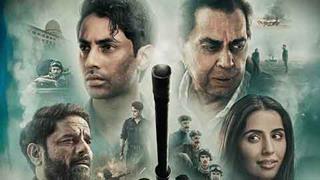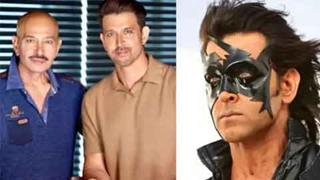Not many know it, but "Neecha Nagar", a film by Chetan Anand - one of Indian cinema's pioneers - preceded Satyajit Ray's "Pather Panchali" by nine years to win the Grand
Prix at Cannes Film Festival in 1946. It was perhaps the first-ever recognition of an Indian film in an international film festival.
But while "Pather Panchali" and other Ray films have continued to win acclaim at home and abroad - more abroad than home - "Neecha Nagar", made during the last phase
of the freedom movement (1945-46) with all the restrictions the British could enforce, was never released commercially in India.
The film was the highlight of a three-week long retrospective of films by Chetan Anand at the India International Centre here that ended Thursday.
Viewed six decades later, it carries the impact of that era's turmoil of a people in the throes of the independence movement. A Gandhi cap-wearing protagonist and his
charkha-(spinning wheel) wielding friend were subtle touches that escaped the British censors.
Socialism was very much the flavour and Chetan Anand and his group were part of the Indian People's Theatre Association (IPTA), a prominent left-leaning cultural
outfit.
The film depicted the sufferings and struggles of Neecha Nagar - the name deriving from a low-lying city suburb - against a tyrant who diverts water supply to make profits
and then opens a hospital to nurse those stricken by consuming contaminated water.
It had Zohra Segal, who at 94 continues to regale the cinegoer with her 'youthful' presence in many a Bollywood film even today.
The film's heroine and Chetan Anand's wife Uma Anand, who still has the same tall and slim frame except that she carries a walking stick at 80-plus, has scripted a
memorable tribute to her husband - "Chetan Anand - The Poetics of Film".
The tribute has been turned into a film by elder son Ketan Anand, who has put together a collage of interviews with Hema Malini, Mahesh Bhatt and many who worked with
or admired the work of Chetan Anand.
Brilliantly anchored by Tom Alter, the 90-minute film was well received by European cineastes recently.
Chetan Anand was the first in the family to move from his home in Gurdaspur, Punjab, to become part of Bollywood, to be followed by Dev Anand. Incidentally, Chetan
Anand's retrospective preceded the release of Dev Anand's memoir, "Romancing With Life."
If Dev Anand has recalled 62 years of 'romancing' with cinema in his book, Chetan Anand's films span 32 years of creativity that contributed significantly to the "golden age"
of Indian cinema.
The most significant part of the Anands is that although the brothers - the youngest being the late Vijay Anand - worked together and separately at different times, each had
a unique style, a different approach to the medium and, in more sense than one, a different world view.
All three breathed cinema and engaged in its various departments for long years. But Chetan Anand remained the visionary and writer-director, Dev Anand the actor and
Vijay Anand, essentially a director.
The six films screened at India International Centre here this month show Chetan Anand's wide sweep from mysticism (Anjali - 1956) that he imbibed while studying in an
ashram in Hardwar at the foothills of the Himalayas.
An abandoned toddler lost in labyrinthine Mumbai captivated audiences for over two hours in "Aakhri Khat" (1967), which was a unique experiment.
His admiration of Jawaharlal Nehru, with whom he empathised after the 1962 India-China conflict, his love for the mountains and the army led him to make "Haqeeqat" that
remains a pioneer in its genre.
Chetan Anand's cinematic experiments also include "Heer Ranjha" (1970), written totally in verse by Kaifi Azmi that remains evergreen. It captured the rural Punjab of a
bygone era depicted by Waris Shah.
Most Chetan Anand films had memorable songs -- lyrics by Kaifi Azmi and music by Madan Mohan, who combined songs seeped deeply in Hindustani classical music with
fast-paced Western background score.
Like K. Asif's "Mughale-e-Azam" and B.R. Chopra's "Naya Daur", "Haqeeqat" is to be colourised to show to the new century's youth what war means to a nation, Ketan
Anand said.
Remembering Chetan Anand and his Neecha Nagar
Saturday, September 29, 2007 11:33 IST


















